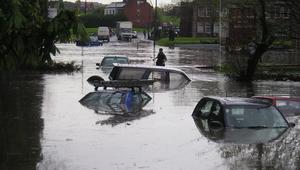Leeds City Council
Electric Vehicles
Leeds City Council are currently investigating the development of the required infrastructure needed to support transition of the Leeds City Council (LCC) fleet to Ultra Low Emission Vehicles (ULEV).
A network of varying speed electric charge points needs to be established across the city for use by both Leeds City Council fleet and potentially to support the public in moving towards electric vehicles. Infrastructure will be designed to provide suitable charge points for the LCC fleet at strategic points in the city (e.g. depots/key sites) and to support the low emissions strategy by incentivising electric vehicle purchase by providing parking/charging advantages in the city centre. This will also support the city in meeting Air Quality targets that have been set for 2020.
Across the corporate estate we now have 74 charge points for electric vehicle, with 30 fitted this financial year alone, laying the foundation for further purchases of electric vehicles in addition to those we have already procured. This places Leeds City Council ahead of other large organisations with commitments to pioneer electric vehicle use such as Transport for London and British Gas. According to independent experts at CENEX, “Leeds City Council is the local authority with the largest number of full electric vehicles currently numbering 43".
“Leeds City Council is the local authority with the largest number of full electric vehicles currently numbering 43"
A review of procurement guidelines and operational requirements of corporate fleet helped identify opportunities for the replacement programme to bring low emission or alternative fuel vehicles into the fleet. The rationalisation of fleet and operational/service behaviours analysed helped to identify opportunities for shared vehicle use and optimisation of utilisation. In addition, there is a target for the significant transition of fleet to alternative fuels in the long term, with total switch by 2025. It is anticipated that a drive towards a low emission agenda in procurement contracts will occur across all categories.
The move towards electric vehicles through infrastructure improvements and procurement changes is estimated to save 770 tonnes up to 2020.




